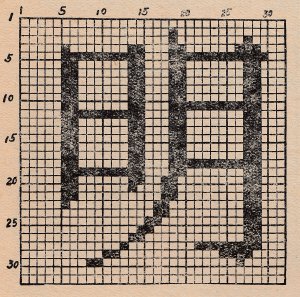Presented By: Science, Technology and Society
STeMS Speaker Series | Is the Pixel Political? What Chinese Computing Teaches Us About the Digital Age
Thomas S. Mullaney, Stanford University

The pixel is the quintessential building block of the digital age—a visual manifestation of the binary logic of zeros and ones. In its seeming universalism, it spans text and image, and operates seamlessly across languages, scripts, and cultures. Or does it?
Drawing upon the first-ever history of Chinese-language computing—a now trillion-dollar industry that, just fifty years ago, was widely considered unimaginable—this lecture interrogates the politics of the seemingly universal pixel.
How did engineers, linguists, and technologists overcome the complexities of digitizing the world’s largest non-alphabetic script, with its 100,000+ characters? And what does this history reveal about the deeper, often invisible, structures of power and exclusion embedded within digital infrastructures?
Professor Thomas S. Mullaney of Stanford University—recipient of Stanford’s highest award in teaching and Kluge Chair of Technology and Society—explores these questions through insights from his award-winning two-book series, The Chinese Typewriter and The Chinese Computer (MIT Press). Based on research spanning over 80 archives across 15 countries, this lecture offers a global history of the information age—one that challenges the Euro-American assumptions that have long shaped both corporate technology and academic scholarship.
Thomas S. Mullaney is Professor of Chinese History at Stanford University, a Guggenheim Fellow, and the recipient of Stanford’s highest award for excellence in teaching, the Gores Award. He is the author of The Chinese Computer: A Global History of the Information Age (MIT), co-author of Where Research Begins (University of Chicago Press, with Christopher Rea), The Chinese Typewriter: A History (MIT, winner of the Fairbank Prize), and Coming to Terms with the Nation: Ethnic Classification in Modern China (UC Press), among other works. His writings have appeared in Fast Company, MIT Technology Review, Quartz, the South China Morning Post, TechCrunch, the Journal of Asian
Studies, Technology & Culture, Foreign Affairs, and Foreign Policy. His work has been featured in RadioLab, The Atlantic, the BBC, and in invited lectures at Google, Microsoft, Adobe, and more. He earned his BA and MA from the Johns Hopkins University, and his PhD from Columbia University.
Drawing upon the first-ever history of Chinese-language computing—a now trillion-dollar industry that, just fifty years ago, was widely considered unimaginable—this lecture interrogates the politics of the seemingly universal pixel.
How did engineers, linguists, and technologists overcome the complexities of digitizing the world’s largest non-alphabetic script, with its 100,000+ characters? And what does this history reveal about the deeper, often invisible, structures of power and exclusion embedded within digital infrastructures?
Professor Thomas S. Mullaney of Stanford University—recipient of Stanford’s highest award in teaching and Kluge Chair of Technology and Society—explores these questions through insights from his award-winning two-book series, The Chinese Typewriter and The Chinese Computer (MIT Press). Based on research spanning over 80 archives across 15 countries, this lecture offers a global history of the information age—one that challenges the Euro-American assumptions that have long shaped both corporate technology and academic scholarship.
Thomas S. Mullaney is Professor of Chinese History at Stanford University, a Guggenheim Fellow, and the recipient of Stanford’s highest award for excellence in teaching, the Gores Award. He is the author of The Chinese Computer: A Global History of the Information Age (MIT), co-author of Where Research Begins (University of Chicago Press, with Christopher Rea), The Chinese Typewriter: A History (MIT, winner of the Fairbank Prize), and Coming to Terms with the Nation: Ethnic Classification in Modern China (UC Press), among other works. His writings have appeared in Fast Company, MIT Technology Review, Quartz, the South China Morning Post, TechCrunch, the Journal of Asian
Studies, Technology & Culture, Foreign Affairs, and Foreign Policy. His work has been featured in RadioLab, The Atlantic, the BBC, and in invited lectures at Google, Microsoft, Adobe, and more. He earned his BA and MA from the Johns Hopkins University, and his PhD from Columbia University.